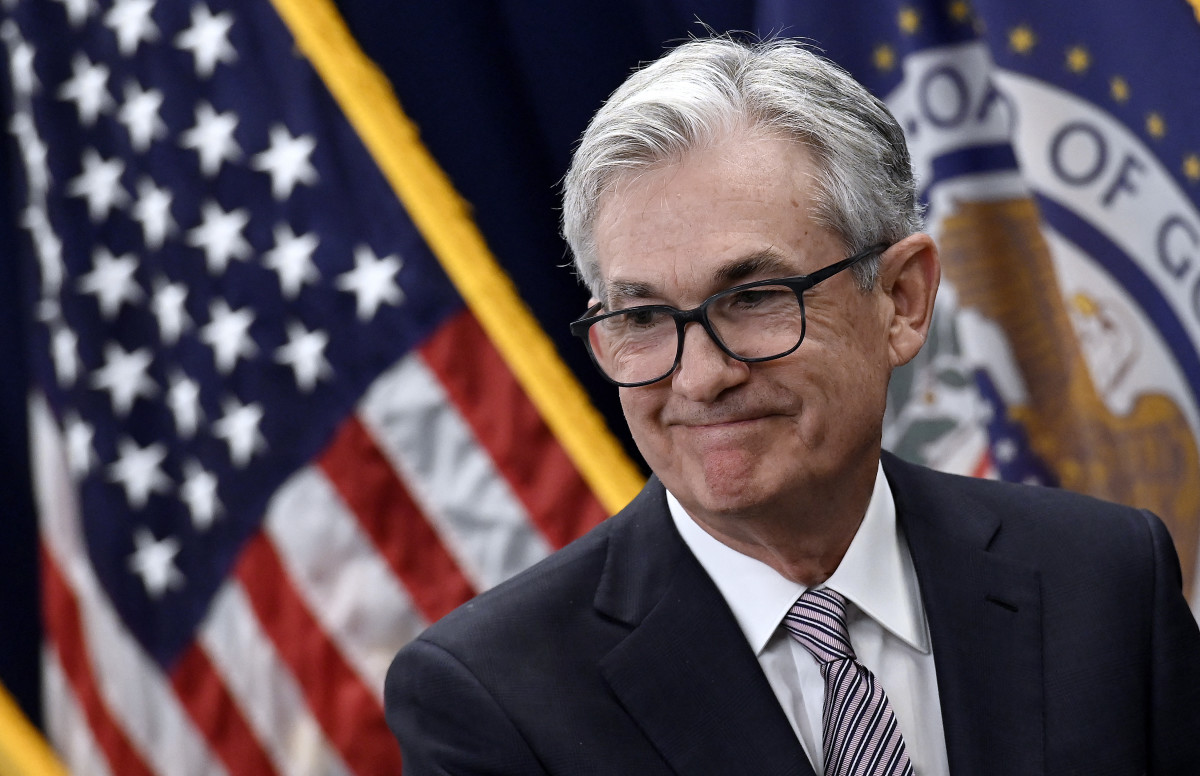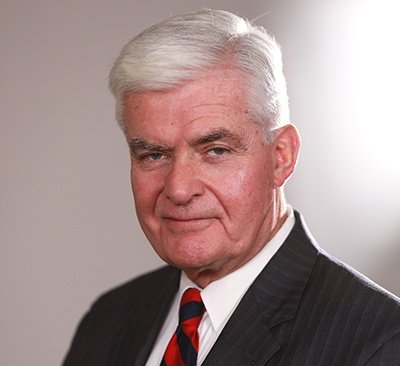Government
Americans doubt the economy’s stunning success. They shouldn’t.
Apart from decades-low unemployment, recession-defying growth, slowing inflation and record-high stock markets, what has the economy done for us?

'Vox populi, vox dei' is the lesson most politicians, and no small number of economists, absorbed with their baby food.
Roughly translated from Latin as "the voice of the people is the voice of God,' the 'Vox populi' approach to public opinion polls tends to have long lingering effects on myriad government and economic policies.
In an election year, however, the "voice of the people" influence extends beyond the powers of any known deity and rises to the realm of the universally accepted empirical truth.
That's been starkly evident in the ongoing debate about the strength of the domestic economy, which is typically associated with White House policies (despite the president's limited ability to influence anything beyond big-picture jawboning).
A recent Wall Street Journal survey suggested that less than a third of voters agreed that the economy has improved over the past two years despite an average GDP growth rate of 3.9%, the best in over a decade.
A New York Times poll, meanwhile, indicates that nearly three-quarters of those surveyed think the economy is doing only fair, or poor, despite the fact that U.S. growth has outpaced every other similar-sized market in the world since the 2020 pandemic.
Jobs, growth and stock-market records
The stock market, too, has reached a series of all-time highs, with the Dow Jones Industrial Average flirting with the 40,000-point threshold. That level is more than 33% higher than at the peak of former President Donald Trump's four-year term in office.
When it comes to individual assessments of the economy, inflation pressures tend to trump labor-market strength and stock-market records, if for no other reason than rising prices affect everyone while job losses impact a much smaller number.
That could be why a major CBS News poll showed most Americans consider the economy to be in a better position under Trump, even though employment, GDP growth, and wage gains have all outpaced the pre-COVID averages under his administration.
Related: Fed members' updated interest rate outlooks rock markets
In fact, headline inflation pressures have eased notably since they reached a four-decade peak of 9.1% in summer 2021, powered at the time by COVID supply-chain disruptions, surging energy prices linked to Russia's war on Ukraine, and the billions in pandemic support provided by the U.S. government.
The Fed's delayed reaction to the spike in domestic inflation, which was mirrored in major economies worldwide, led to the most aggressive series of interest-rate increases in a generation and took the central bank's benchmark lending rate to a 22-year high of between 5.25% and 5.5%.
Amid those rate hikes, the normalizing of supply-chain flows from Asia and elsewhere, and a pullback in gasoline prices, inflation slowed to just 3% last summer. But it has remained at or above that pace ever since, powered by stubbornly high costs for rent, cars, and healthcare services.
Inflation pressure is real; labor market is resilient
However, alongside that inflation stickiness has been one of the most resilient, and Wall-Street-defying, labor markets on record.
More than 15 million new jobs have been added to the economy since 2022, with the recent average showing 266,000 new hires every month since June. That's helped keep the headline unemployment rate under 4% for the past two years, the longest run since the Vietnam War.
Data published Friday also showed a much bigger-than-expected addition of 303,000 new jobs over the month of March. More than three-quarters of those added jobs came from the private sector, with average hourly earnings easing modestly to an annual rate of 4.1%.
"With jobs and wages rising and inflation moderating, Americans will continue to spend this year, extending the economic expansion," said Comerica Bank's chief economist, Bill Adams.
While inflation remains stubbornly north of the Federal Reserve's 2% target, wage gains have helped Americans combat headline price increases, at least to some degree.
Related: Jobs report smashes forecasts as red hot labor market confounds Wall Street
Daniel Casali, chief investment strategist at wealth manager Evelyn Partners, notes that so-called nominal labor income, which pulls together wages, hours worked and the broader labor market, rose 6% in March from a year earlier. That's nearly double the rate of inflation over the month of February.
What might be harder for Americans to overcome, however, is the quiet surge in gasoline prices since last fall. That's added 6.6% to the cost of a gallon and taken the national average to a six-month high of $3.582, according to the AAA motor club. Further gains might be coming as the U.S. heads into the summer driving season.
The recent leap in global oil prices, which are growing increasingly sensitive to headlines from the ongoing conflict in Gaza as well as Russia's actions in Eastern Europe, is likely to put gasoline prices back on the list of inflation factors and blunt the Fed's, and the market's, hopes for summertime interest-rate cuts.
Who needs the Fed?
But they might not be needed, according to Minneapolis Fed President Neel Kashkari, who told Pensions & Investments late last week that "there's a lot of momentum in the economy right now."
The Atlanta Fed's GDPNow forecasting tool, a real-time tracker of current-quarter growth, suggests that the world's biggest economy is expanding at a 2.5% clip, following on from gains of 3.4% and 4.9% in Q3 and Q4 2023, respectively. Both those figures topped economists’ forecasts.
For an economy to grow at this pace while adding 266,000 new jobs every month with rising wages and slowing inflation, is nothing short of astonishing.
Related: The Fed's stock market influence, like inflation pressure, continues to fade
Whether you attribute that to the policies of the Biden administration or count the cost of the $1.7 trillion budget deficit recorded last year might depend largely on your political affiliation.
As will your thoughts on the impact of immigration, which has helped boost the overall job-addition total and increased the overall level of labor-force participation while keeping wages from spiraling beyond the Fed's current comfort level.
More Economic Analysis:
- Bond markets tell Fed rate story that stocks still ignore
- February inflation surprises with modest uptick, but core pressures ease
- Vanguard unveils bold interest rate forecast ahead of Fed meeting
But what can't be reasonably argued any longer is whether the economy itself is performing well.
"Big fiscal is undeniably a positive force for current growth, and the addition of immigrants to the labor market has clearly increased output and helped hold down wage growth," said Steve Wyett, chief investment strategist at BOK Financial in Tulsa, Okla.
"Going forward it will be a question of how long these factors can remain a tailwind," he added. "For the moment, they allow the Fed to be patient as they think about when to begin recalibrating monetary policy."
The only question now, it seems, is whether the 'Vox populi' will recalibrate their thoughts on the economy.
Related: Veteran fund manager picks favorite stocks for 2024
unemployment pandemic economic expansion dow jones stocks monetary policy fed federal reserve budget deficit white house trump gdp unemployment oil europe russia ukraineInternational
Europe’s South Takes The Lead
Europe’s South Takes The Lead
By Maartje Wijffelaars, Senior Economist at Rabobank
Brent crude oil extended its gains and broke through the…

By Maartje Wijffelaars, Senior Economist at Rabobank
Brent crude oil extended its gains and broke through the 90 dollars a barrel threshold yesterday, for the first time since end-October last year. The commodity continues its ascend this morning and at the time of writing it’ll cost you 91.2 dollars to buy a barrel. And more support for the commodity is on the table if Russia and Iraq actually stick to the production quotas. Indeed, on Wednesday OPEC+ decided to extend its production cuts through June, but Russia and Iran have produced more than agreed recently. Ukraine strikes on Russian production facilities over the past weeks could ‘help’ Russia lowering its exports, as sites are down. The exact amount of damage is unknown, however, with multiple different figures going around.
Apart from a tighter market, rising uncertainty in the Middle East have fed oil prices since Monday. At the start of the week, Israel hit Iranian military officials in Syria, stoking fears of an escalation of the Israel-Hamas conflict into the broader region.
Yesterday’s ECB accounts of its March meeting showed that uncertainties with respect to the developments of energy prices are on the ECB’s radar. Specifically they mentioned that “Upside risks to inflation included the heightened geopolitical tensions, especially in the Middle East, which could push energy prices and freight costs higher in the near term and disrupt global trade.” And that “It was important to keep in mind that wrong assumptions on energy prices would eventually feed through to all inflation components, either through input prices or indirectly, via wages.”
Overall, the accounts strongly point to a June move, but also underscore the likelihood of a cautious approach for the trajectory afterwards. For more on our ECB view please keep an eye on the preview for next week’s meeting our ECB watcher Bas van Geffen will send out today.
Meanwhile, yesterday’s PMI figures for March narrowly lifted activity in the Eurozone to expansionary territory, for the first time since May 2023. The composite figure came in at 50.3, despite an accelerated contraction in manufacturing (46.1), owing to improved conditions in the services sector on the back of rising new orders, output and employment (51.5).
Indices for individual member states continued to show quite some divergence among member states. Specifically, they showed that things are going rather well in the South, with a composite PMI of 55.3 in Spain and 53.5 in Italy, but (still) not too good in Germany (47.7) and France (48.3). It’s a story that has been playing out for quite some time now due to a multitude of both longer- and shorter-term reasons.
For example, Germany has been struggling with low demand in China and a loss in competitiveness not only due to the ‘recent’ surge in gas prices, but also due to relatively high labour cost growth – outpacing that of many peers for years now – and increased competition from Chinese car manufacturers. A very tight labour market has also been putting a lid on business’ abilities to grow.
Meanwhile, Italy has benefitted from increased competitiveness due to both relatively weaker wage growth and quality gains over the past years, supporting export growth. Indeed, it’s real effective exchange rate based on relative unit labour costs has been steadily in decline since the GFC. It has furthermore been able to tap into high-growth niche markets such as maritime transport production and has suffered less than Germany from supply chain disruptions during the pandemic.
Another important driver of Italy’s post-pandemic boom is the Superbonus tax credit scheme which has fuelled construction investment since 2020 – support from the latter is expected to come to end, however, as the scheme is being faced out. Finally, Italy has benefitted from EU grants from the Recovery and Resilience Facility (RRF) – also known as the EU pandemic recovery fund. Conditional on reform and investment progress, it is entitled to grants worth in total EUR 72bn (3.4% of 2023 GDP). So far it has received just over half of the amount it’s eligible to, although part of that money is still waiting to be spend.
Both wage moderation and significant support from the EU recovery fund have also helped Spain. The latter is entitled to as much as EUR 80bn in EU grants (5.5% of 2023 GDP) and has so far received a little less than half, although not all money received has been spent yet. More beneficial demographic developments have also helped Spain when compared to both Germany and Italy - this partly results from immigration. Another important factor of Spain’s more recent outperformance is that it has been playing catch up lately. It took longer for its hospitality and tourism driven economy to pick up from the pandemic slump. Furthermore, while its relatively small industrial sector – with a relatively strong focus on car manufacturing – has meant that Spain’s economy benefitted less from the strong industrial production growth during the pandemic years, past year(s)’ slump in the sector has also acted as a smaller drag.
German factory orders for February (0.2% m/m and -10.6% y/y) and industrial production in France (0.2% m/m and -0.8% y/y), out this morning, confirmed both countries’ rather weak start to the year. Yes, both saw a minor monthly uptick after a major contraction in January, but performance was worse than expected and in year-on-year terms both indicators weakened compared to January. At the same time, Spain’s industrial output in February exceeded expectations and picked up both compared to January (0.7% m/m after 0.4% m/m in January) and a year ago (+1.5% y/y in February after -0.6% y/y in January).
On a positive note, figures for Germany, France, and the Eurozone were upwardly revised from preliminary estimates. This suggests that the economy gained some steam in the final weeks of the quarter. This suggests growth in the Eurozone is likely to pick up in Q2, from a rather flat start this year. This is in line with our forecast, as private spending is projected to benefit from improved household purchasing power and a decline in long-term interest rates, while investment in general will be supported by the RRF funds – especially in Southern member states. Overall, Spain is expected to largely outperform peers this and next year, while France and Italy are projected to perform broadly in line with the Eurozone average; Germany is to underperform.
International
French Pilots To Go On Strike Against Government’s Proposal To Ban Strikes
French Pilots To Go On Strike Against Government’s Proposal To Ban Strikes
It’s been a week full of absurd news and this certainly is a fitting…

It's been a week full of absurd news and this certainly is a fitting end to it.
At a time when workers around the world are striking and demanding higher pay left and right to keep up with soaring prices, the Air France pilot union is doing the same... only with a twist: this strike isn’t due to any current labor issues between the union and company, but rather due to a new government bill that’s currently under consideration; as such the pilots are about to go on strike over a government’s proposed ban on strikes.
As View from the Wing reports, the French government is considering a ban on strikes “over fixed periods, up to 60 days per year" and the French Senate will debate the proposed bill April 9th. In France, strikes are often timed to maximize the impact they have on customers, so the government’s goal is to presumably limit strikes over the busiest periods, especially in the transportation sector (the upcoming Summer Olympics in Paris may also factor into this).
Meanwhile, the SPAF pilot union (Syndicat des Pilotes du groupe Air France), which represents pilots at Air France, believes that Air France is not public transport and not engaged in public service, and thus their right to strike shouldn’t be constrained to benefit the public. Doing otherwise “would “relegate” the country to an authoritarian state” according to the pilots who clearly are unaware that France was relegated to an authoritarian state long ago.
And since the union “cannot accept” such "authoritarian" legislation they are calling on all French pilots to strike April 15-16.
The pilots maintain that there’s a separation between the airline and society, and that they don’t owe a duty to the French public – yet their own actions undermine the claim. They say Air France is private, this new potential policy is government, and they’re protesting the government policy by striking… against the airline.
Meanwhile, it’s surreal to suggest that:
- Air France isn’t an artifact of the state The French government owns nearly 30% of Air France KLM. The airline received approximately $17 billion in subsidies during the pandemic. They have received grants of favorable slots at both Paris-Orly and Charles de Gaulle airports, which are property rights gifted by the government and which exclude competition.
- French labor law doesn’t already interfere in employee-employer relations French labor law is already tilted heavily towards striking workers. The pilot union doesn’t claim that this risks tyranny. Airlines cannot generally hire replacement workers (and can only reassign duties to existing workers). Here the French state gives labor tremendous leverage over employers through force of law. The French Labor Code also imposes severe conditions on an employer’s ability to dismiss workers, from severance pay to a worker’s right to challenge dismissal in labor courts. It requires consultation with a Social and Economic Committee and developing job-saving plans and plans to minimize the impact of layoffs through transfers and retraining where more than 10 employees are involved.
The French government is the primary owner of Air France and heavily involved in French labor relations. New legislation threatens to tinker with rules that would limit harm to French citizens from strikes at this business that’s been deemed systemically and socially important (hence billions in subsidies from citizens). With this change, if it were to come to pass, French law would still tilt heavily towards workers.
Meanwhile, Air France pilots are not the downtrodden souls union workers normally want to be seen as: "these aren’t factory workers during the industrial revolution", as VFTW points out. On average Air France pilots earn around $160,000 with senior captains frequently earning in excess of $250,000 per year. And since French per capita GDP is half that of the United States, these numbers are even more impressive.
Bottom line: French pilots striking to push for government policies protecting their privileged positions at the expense of average citizens is an awkward position to be in, but come to think of it not all that different than ALPA in the United States.
Government
Face-to-face reverse mortgage counseling is back in Massachusetts (for now)
HECM counseling in Massachusetts has a legal face-to-face requirement now back in effect, but the industry is hoping to change that.

Reverse mortgage professionals in Massachusetts will be reliant on their borrowers’ ability to complete their required counseling sessions under the state’s face-to-face mandate following the expiration of a provision temporarily relaxing the standard that expired on April 1.
This is according to prior legislative documents reviewed by RMD and an announcement this week by the National Reverse Mortgage Lenders Association (NRMLA).
In an email update to its members, NRMLA explained that a spending bill containing an amendment that would permanently allow for telephonic and video counseling was approved by both houses of the state’s legislature, but that the addition of new amendments to the Senate version had prolonged the process that would allow it to become law prior to the expiration of the last extension.
The issue has remained a specter over the state’s reverse mortgage business for years. Massachusetts is the only state in the country to require in-person reverse mortgage counseling, a requirement that caused issues and effectively halted its reverse mortgage business during the early days of the COVID-19 pandemic.
Industry professionals and trade organizations — including NRMLA and the regional Massachusetts Mortgage Bankers Association (MMBA) — have urged state leadership to adopt a more permanent solution. It looked as if one would pass last year, but a revision of the budget bill deliberated at that time included an amendment that removed the permanent allowance from a prior version approved by the State House.
Reverse mortgage industry veteran George Downey of The Federal Savings Bank in Braintree, Mass. has been a critical figure in the advocacy for a permanent solution that would allow for remote counseling. While he remains apprehensive about the latest budget bill and whether it will include the desired language in its final form, he also shared that this time feels a bit different when compared to prior recent efforts to address this issue.
In addition to support from NRMLA and other trade associations, Downey said the outreach he and others have done on the issue has felt fruitful.
“We’ve done as much as I think reasonably could be done to get the information to the surface so that the conference committee members, when they were evaluating these various amendments, would have some sense of what this is about and how important it is,” Downey said in an interview. “So, I feel a measure of confidence in that regard. I’ll be optimistic and give us 50% odds.”
Part of the challenge in getting such a provision passed, he said, stems from longtime reputational challenges the reverse mortgage product has had that are difficult to challenge among lawmakers, he explained.
“It’s those old misconceptions, those old biases that carry a lot,” he said. “That’s just speculation on my part, but I’m pretty sure that that was the problem.”
Downey previously explained to RMD that there are only five full-time U.S. Department of Housing and Urban Development (HUD)-approved counselors serving the state. But the disruption caused by COVID-19 has helped lead lawmakers, regulators and the public to become more aware of how useful remote communication is today.
At the NRMLA Annual Meeting and Expo held last October in Nashville, HUD’s Deputy Assistant Secretary for Housing Counseling David Berenbaum alluded to the challenges in Massachusetts. He elected not to directly comment on them but said that there is no reason for HUD to believe that alternative delivery methods of counseling could not provide quality services.
“Our expectation at HUD is that the quality of the services should be maintained regardless of modality,” he said at the event. “And I do know from my experience in the space that superb housing counseling can happen in many different ways. It’s really the professional offering those services that make all the difference.”
senate pandemic covid-19-

 International2 weeks ago
International2 weeks agoParexel CEO to retire; CAR-T maker AffyImmune promotes business leader to chief executive
-

 Spread & Containment3 weeks ago
Spread & Containment3 weeks agoIFM’s Hat Trick and Reflections On Option-To-Buy M&A
-

 International4 weeks ago
International4 weeks agoEyePoint poaches medical chief from Apellis; Sandoz CFO, longtime BioNTech exec to retire
-

 International4 weeks ago
International4 weeks agoWalmart launches clever answer to Target’s new membership program
-

 Uncategorized4 days ago
Uncategorized4 days agoVaccinated People Show Long COVID-Like Symptoms With Detectable Spike Proteins: Preprint Study
-

 Uncategorized17 hours ago
Uncategorized17 hours agoCan language models read the genome? This one decoded mRNA to make better vaccines.
-

 Uncategorized1 month ago
Uncategorized1 month agoEvidence And Insights About Gold’s Long-Term Uptrend
-

 Spread & Containment2 weeks ago
Spread & Containment2 weeks agoJapanese Preprint Calls For mRNA VaccinesTo Be Suspended Over Blood Bank Contamination Concerns





















